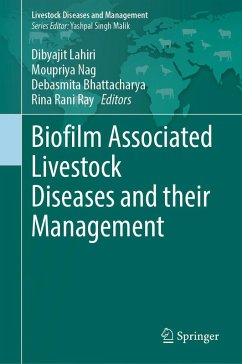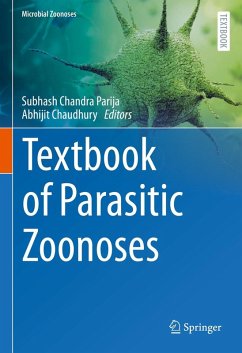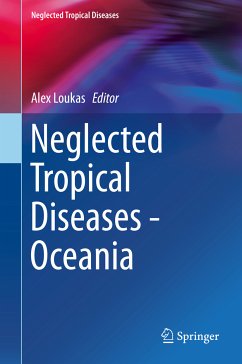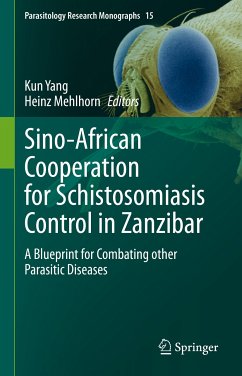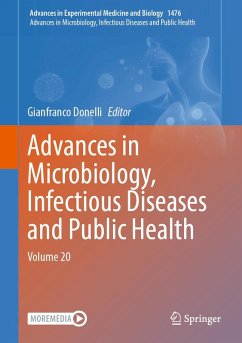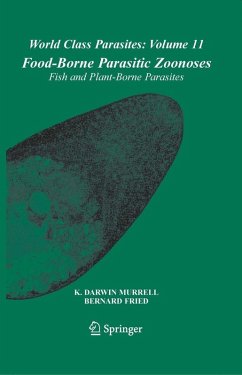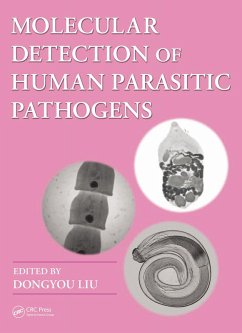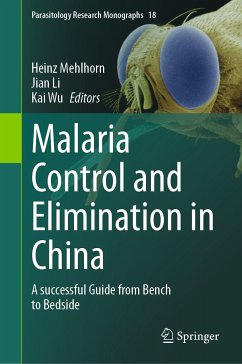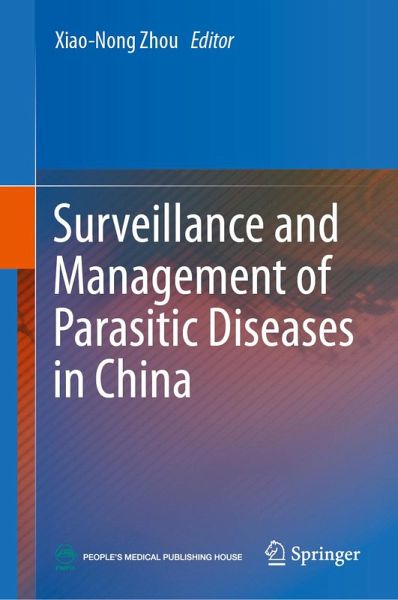
Surveillance and Management of Parasitic Diseases in China (eBook, PDF)
Versandkostenfrei!
Sofort per Download lieferbar
184,95 €
inkl. MwSt.
Weitere Ausgaben:

PAYBACK Punkte
92 °P sammeln!
This book intends to share the lessons and experiences learnt from the Chinese parasitic diseases control programme to the professionals, policy makers and researchers from other disease endemic countries. Especially, those lessons on surveillance and response have been well distilled at national level in China, where some of parasitic diseases have been and going to be eliminated, e.g. lymphatic filariasis, malaria, schistosomiasis. The book covers the concept and technologies on surveillance and response to endemic and outbreaks of parasitic diseases, as well as relevant case management and ...
This book intends to share the lessons and experiences learnt from the Chinese parasitic diseases control programme to the professionals, policy makers and researchers from other disease endemic countries. Especially, those lessons on surveillance and response have been well distilled at national level in China, where some of parasitic diseases have been and going to be eliminated, e.g. lymphatic filariasis, malaria, schistosomiasis. The book covers the concept and technologies on surveillance and response to endemic and outbreaks of parasitic diseases, as well as relevant case management and data handling.
The book includes three main parts. The first part consists of general chapters, which covers the general information on parasitic disease surveillance, the classification and application of surveillance technologies, etc. The second part of chapters cover surveillance technologies on parasites distribution, infections patterns in a region, related vectors, ecological environment elements, and the early warning and response, etc. In the third part of chapters, the concepts, methods, operating procedures, data collection, result analysis, reports and conclusions of various surveillance technologies in detail, along with the examples and guidelines of surveillance and management for parasitic infections are included.
The book is likely to be of interest to the world-wide professionals, practitioners, managers and policy makers in governments or industry in the field of infectious diseases control.
The book includes three main parts. The first part consists of general chapters, which covers the general information on parasitic disease surveillance, the classification and application of surveillance technologies, etc. The second part of chapters cover surveillance technologies on parasites distribution, infections patterns in a region, related vectors, ecological environment elements, and the early warning and response, etc. In the third part of chapters, the concepts, methods, operating procedures, data collection, result analysis, reports and conclusions of various surveillance technologies in detail, along with the examples and guidelines of surveillance and management for parasitic infections are included.
The book is likely to be of interest to the world-wide professionals, practitioners, managers and policy makers in governments or industry in the field of infectious diseases control.
Dieser Download kann aus rechtlichen Gründen nur mit Rechnungsadresse in A, B, BG, CY, CZ, D, DK, EW, E, FIN, F, GR, HR, H, IRL, I, LT, L, LR, M, NL, PL, P, R, S, SLO, SK ausgeliefert werden.



